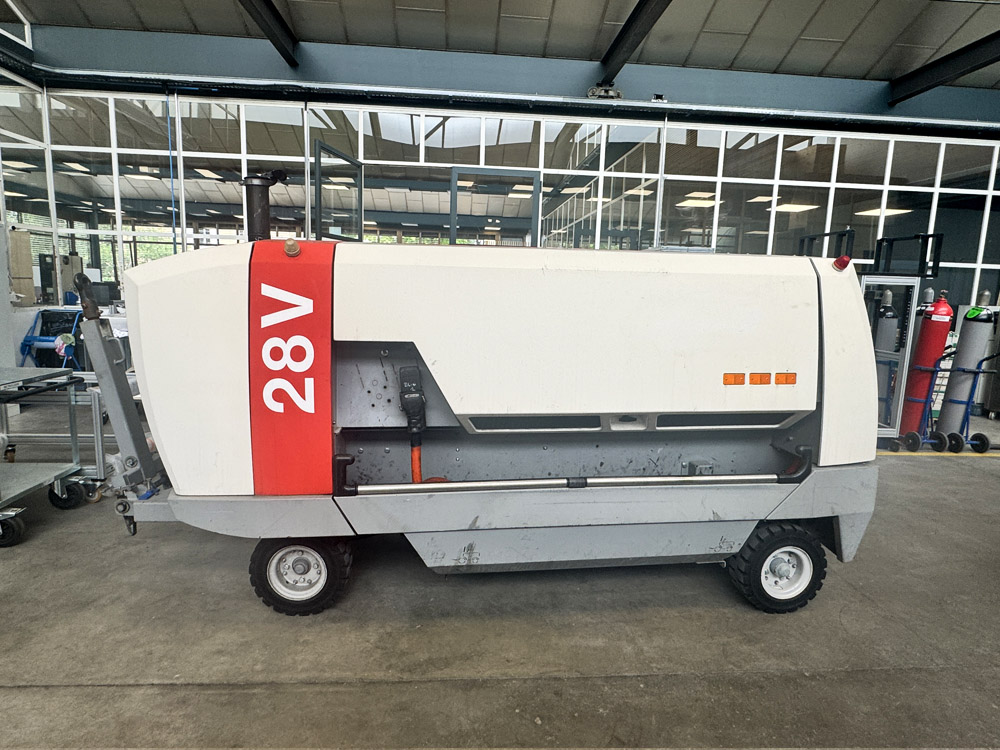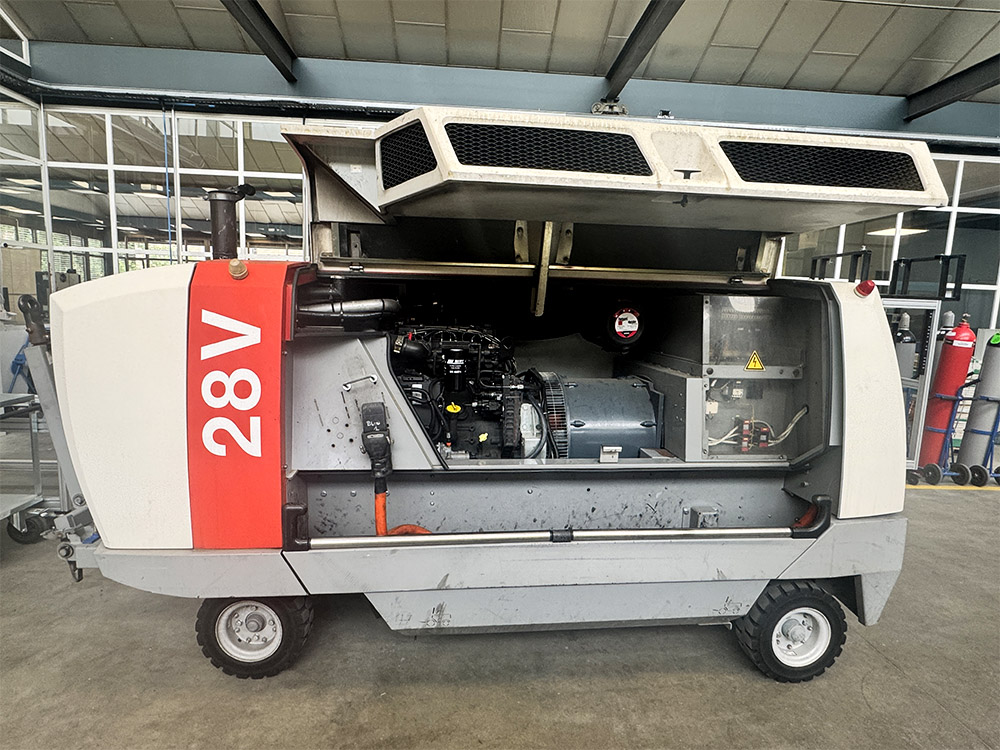When we think of emissions in the aviation sector, flights naturally come to mind. Yet pollution from aviation goes beyond what happens in the sky. Ground operations represent a significant share of emissions and local pollutants, contributing to CO₂, NOx, and particulate matter that affect both the climate and air quality around airports. Transitioning ground support equipment (GSE) to zero-emission technologies is therefore essential for achieving sustainability goals and improving working conditions for airport staff.
Electrification with battery-powered vehicles is progressing across many GSE applications. However, it’s not always the optimal solution, especially for equipment requiring high power, long runtimes, and quick refueling. GPUs, which supply electricity to aircraft parked at gates or remote stands, are a prime example. Traditionally powered by diesel engines, they operate intensively during peak hours and must deliver reliable performance in all conditions.
Hydrogen offers significant advantages for these use cases, including high energy density, fast refueling comparable to diesel, and reliable performance even in cold climates where batteries can struggle. Importantly, many visionary airports are already investing in hydrogen infrastructure or evaluating it as part of their future energy mix. These forward-looking hubs are preparing for a sustainable future and recognize the value of testing hydrogen solutions on a small scale, such as with GSE, to gain practical experience and insights.
Retrofitting existing diesel GPUs to hydrogen propulsion presents a pragmatic and cost-effective path to decarbonization. Rather than replacing entire fleets, operators can upgrade current assets, reducing capital expenditure and avoiding premature equipment scrappage. Retrofitting also accelerates time-to-market for sustainable solutions, helping airports reach environmental targets faster.
“Retrofitting ground power units from diesel to hydrogen is a perfect example of how we can accelerate the energy transition without waiting for entire fleets to be replaced,” said Frédéric Veloso, Director of Business Development at GreenGT. “Airports are actively looking for tangible solutions to decarbonize operations, and this project could become a key enabler for achieving those goals.”
As we advance this project over the coming months, GreenGT remains committed to pioneering sustainable mobility technologies that deliver real-world impact. We look forward to sharing further updates as our hydrogen GPU retrofit progresses toward pilot deployment.

